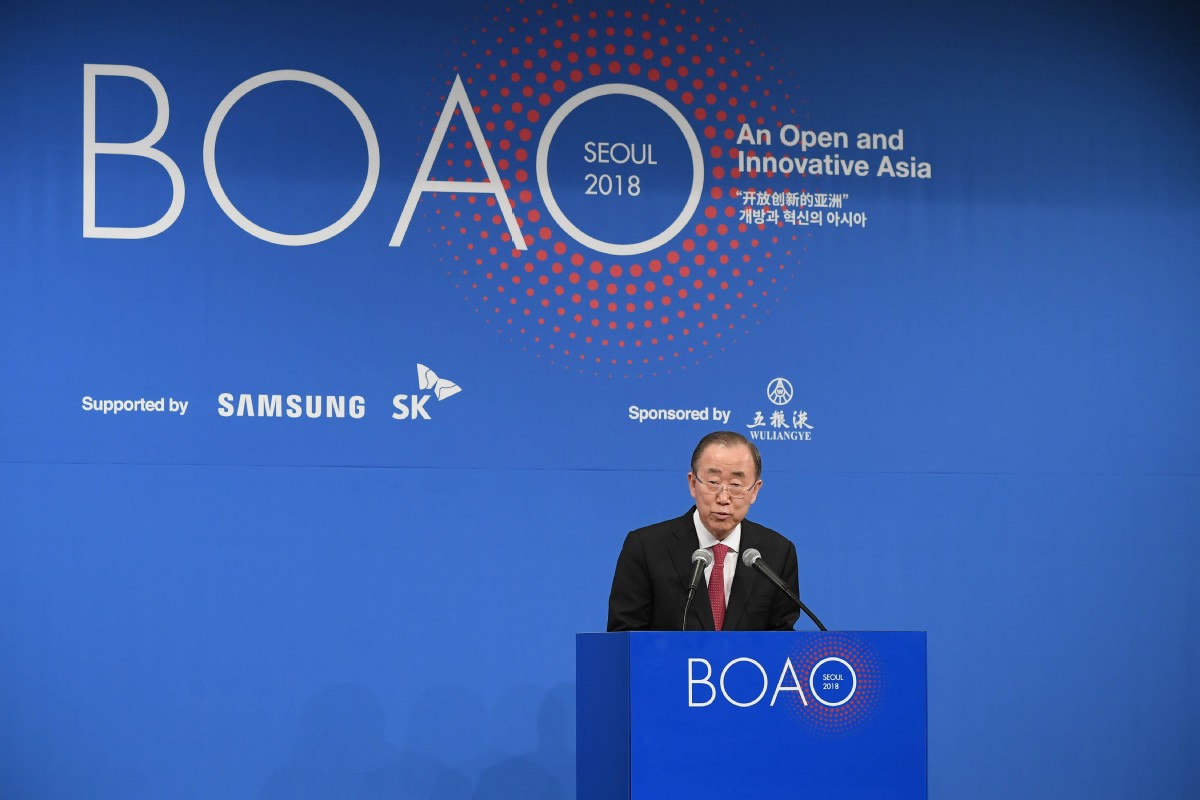Popular Reads
Top Results
Can't find what you're looking for?
View all search resultsPopular Reads
Top Results
Can't find what you're looking for?
View all search resultsBan Ki-moon: Globalization is now at risk
Former UN secretary-general Ban Ki-moon mentioned climate change, income inequality, digital divide and the ignorance of globalization as four main challenges the world is facing.
Change text size
Gift Premium Articles
to Anyone
A
t the Boao Forum for Asia Seoul Conference held on Tuesday, former United Nations secretary-general and chairman of the forum Ban Ki-moon said the merits of globalization are selectively ignored in many debates, which pushes the world into a dangerous situation.
Ban delivered a keynote speech at the event, in which he said the conference was being held at a crucial juncture for the world and for Asia.
"We're facing a wide range of long-term challenges for mankind, which have been complicated by a number of uncertainties and risks in the near term," Ban said, listing climate change, income inequality, digital divide and the ignorance of globalization as four main challenges the world is facing.
Ban said climate change is a fundamental threat to sustainable development of the world and survival of disadvantaged groups and areas, which has deteriorated to a stage where all people must "act together and now".
The collected actions needed and called for by the Paris Accord, however, are being set back by short-sighted withdrawal, lack of political will and failure to honor climate finance commitments by some countries, he said.
Ban also said income inequality is another fundamental challenge to sustainable development. He noted that 10 percent of the world population lives on less than $1.9 a day, leaving the task of ending extreme poverty by 2030 a daunting, if not impossible, one.
He added that inequality is not just about fairness. There will be no sustainable growth where the rich get richer while those in the middle and at the bottom stagnate or get poorer.
In a latest World Economic Outlook issued by the IMF, the organization has pointed to the slow growth of workers' incomes as the biggest secular challenge. Ban said if we cannot ensure that growth is inclusive, it will not be sustainable.
"This applies to all countries, developed and developing alike," he added.
In addition, he stressed that more than half of the world's population has no access to internet, and Asia has the lowest rate of connectivity along with Africa. He said digital divide is one of the difficulties that global political and business leaders must make efforts to tackle.
And for the last but not the least, Ban said the rhetoric, sentiment and policies against globalization is putting the world into a dangerous situation.
Ban said while some blame globalization for widening the gap between the rich and poor, he however has seen the economic wonder of globalization in lifting hundreds of millions of people out of poverty and contributing enormously to bridging income inequalities.
"But such merits are selectively ignored in many debates," Ban said, adding that he hopes Asian countries and business leaders can work together in the context when the world is facing such long-term challenges and near-term uncertainties, so as to give hope to the world and become a global growth engine.
This article appeared on the China Daily newspaper website, which is a member of Asia News Network and a media partner of The Jakarta Post










